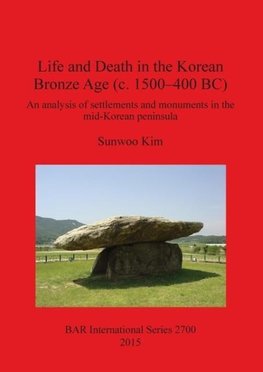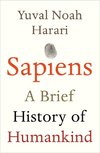
-
 Anglický jazyk
Anglický jazyk
Life and Death in the Korean Bronze Age (c. 1500-400 BC)
Autor: Sunwoo Kim
This research focuses on the Bronze Age in selected areas of Korea; Seoul, Incheon, and Gyeonggi province. Two forms of evidence - settlements and monuments - are taken into account to identify their relationship with landscape and the social changes occurring... Viac o knihe
Na objednávku
106.02 €
bežná cena: 117.80 €
O knihe
This research focuses on the Bronze Age in selected areas of Korea; Seoul, Incheon, and Gyeonggi province. Two forms of evidence - settlements and monuments - are taken into account to identify their relationship with landscape and the social changes occurring between ca. 1500 to 400 cal BC. Life and death in the Bronze Age in Korea has not been synthetically investigated before, due to the lack of evidence from settlements. However, since academic and rescue excavations have increased, it is now possible to examine the relationship between settlements and monuments on a broad scale and over a long-term sequence, although there are still limitations in the archaeological evidence. The results of GIS (Geographical Information System) analysis and Bayesian modelling of the radiocarbon dates from this region can be interpreted as suggesting that Bronze Age people in the mid-Korean peninsula had certain preferences for their habitation and mortuary places. The locations of two archaeological sites were identified and statistical significance was generated for their positioning on soil that was associated with agriculture. It was found that settlements tended to be located at a higher elevation with fine views and that monuments tended to be situated in the border zones between mountains and plains and also within the boundary of a 5km site catchment adjusted for energy expenditure, centring on each settlement. This configuration is reminiscent of the concept of the auspicious location, as set out in the traditional geomantic theory of Pungsu. It can be argued that Bronze Age people chose the place for the living and the dead with a holistic perspective and a metaphysical approach that placed human interaction with the natural world at the centre of their decision-making processes. These concepts were formed out of the process of a practical adaptation to the Bronze Age landscape and environment in order to practice agriculture as a subsistence economy, but they also exerted a profound influence upon later Korean peoples and their identities.
- Vydavateľstvo: British Archaeological Reports Oxford Ltd
- Rok vydania: 2015
- Formát: Paperback
- Rozmer: 297 x 210 mm
- Jazyk: Anglický jazyk
- ISBN: 9781407313511






 Ruský jazyk
Ruský jazyk 





